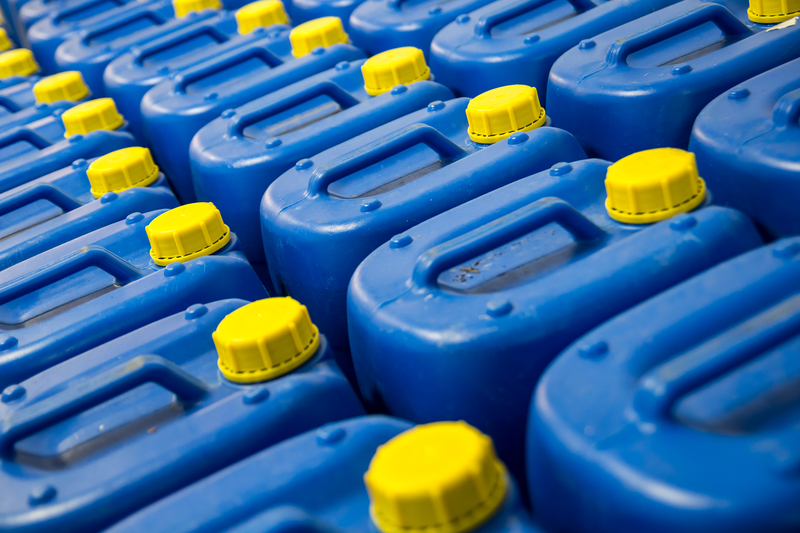If you're planning to stockpile a lot of supplies for SHTF, it's vital to consider storing fuel as well. How else will you keep a car running or a generator functioning without fuel? Even if the thought of fuel intimidates you after you read these tips, you should be in good shape. Read on to learn how where to store it, what type of container it should be in, and how much you can save at a time.
What type of container should you store fuel in?
Similar to having water on hand in an emergency; having a supply of fuel in containers that protect the fuel and are easy to carry is important.There are many different types of fuel containers but for gas, the most common style is plastic and red in color with a built-in spout of some form. Kerosene containers are blue, Diesel is Yellow and it is important to follow this handy color convention so that you don’t accidentally pour regular gas in your kerosene heater and fry your eyebrows off or worse.
You can get new fuel cans just about anywhere. Home Depot, WalMart, Lowes and any hardware store will have some options for you.
You can also pick fuel cans up at yard-sales or salvage companies.
Regardless of whether you have a new or old can, the place you store your fuel should be as airtight as possible. You don’t want fumes leaking into the area you have your fuel stored and gasoline evaporates quickly when exposed to air.
Using Fuel Additives for long-term fuel storage
Gas loses its potency over time and this also applies to Diesel and Kerosene. Diesel for example if stored at lower than 70 degrees will last about 12 months without any additives provided it is kept in a sealed container. If your temperatures are much above 70 that time slips by 50% to 6 months.
Now, what can we do to prevent issues like this and protect our fuel because you don’t want to be trying to outrun the mutant zombie bikers from Mars and have your engine stop? Additives. There are two main additives that I have run across, STA-BIL and PRI-G. PRI has several lines of additives and the –G stands for gasoline.
How Much and Where do I store my fuel?
Can you ever have too much fuel? I don’t know that you can in a real emergency. If you are unable to get to the gas station or there are rations at the pump you can never have too much.Would 500 gallons be enough? It really depends. If you have a minor power outage that lasts a few days, then you wouldn’t need that much gas at all. If we have the end of the world and there are no gas stations anymore, that 500 gallons is going to be a huge help, but it won’t last forever.
What I think is a good baseline takes into consideration the 80/20 rule.
So, if you needed 2 tanks of gas to get you to your retreat and your tank held 20 gallons, I would store 60 gallons of treated fuel. This way if for some reason the grid goes down, the SHTF and zombies are walking all over the gas station parking lots, you should have plenty to get you there.
For a generator, I think you have to look at what you plan to run and how long you plan to run it. 15 gallons would last me about a week as long as I was using the generator for necessities only.
Fuel should be stored in a clean, preferably cool place away from where you live. Don’t store fuel in your house if possible because that is an accident waiting to happen. If my shed blew up I would be a lot less concerned than if my house blew up.
Don’t forget to rotate
Use and rotate your fuel yearly and you will be in great shape if something does require you to use your supplies.
Now that you know everything there is about storing fuel, you should think about where you're going to store yours and what type of disaster is most likely to take place in your area. For example, if you're in California you may be concerned about earthquakes. Remember that you should store fuel in a cool and clean location that's not near where you live, and your fuel should also be rotated annually.
After you have plenty of fuel stockpiled, you won't have to worry about keeping your vehicle running after a collapse and using a generator when you need it. For more on how to store fuel and what else you know about, visit The Prepper Journal.
Featured Image via The Prepper Journal
